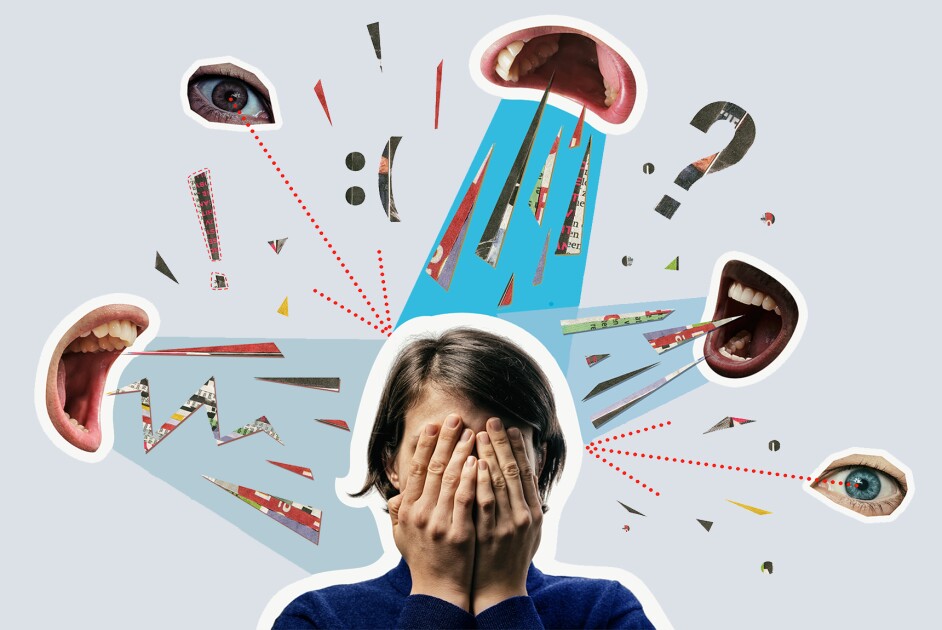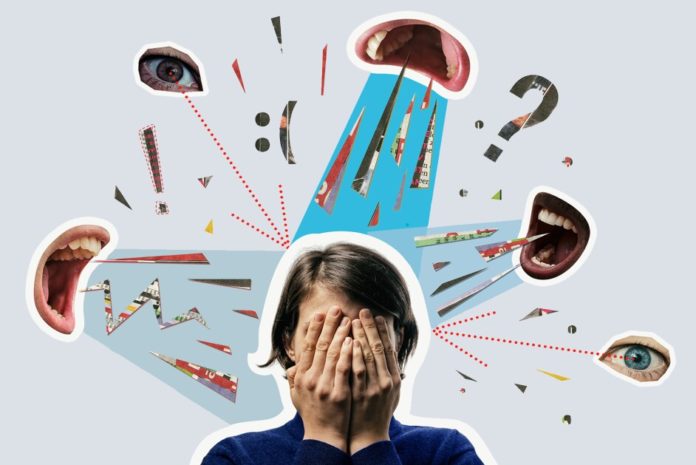
Digital hate directed at the LGBTQ+ community—often from Republican lawmakers or their spokespeople—increased sharply after Florida passed its controversial “Don’t Say Gay” law, according to a new report.
The sharp spike in hateful rhetoric against gay, lesbian, transgender, and nonbinary people was centered on the false accusation that LGBTQ+ people “groom” children, researchers from the Center for Countering Digital Hate found. (Grooming means to befriend or bond with a child with the intention of sexual abuse.)
The law, formally titled Parental Rights in Education, was signed by Florida Gov. Ron DeSantis on March 28. It bans lessons on sexual orientation or gender identity for students in kindergarten through 3rd grades.
In all, the research indicates that a right-wing narrative casting schools as sites of gender indoctrination is now having a broader impact on LGBTQ people and youth.
On Facebook, researchers identified 59 ads that promote the “grooming” narrative that were purchased between March and August andwere viewed a total of more than 2.1 million times.
In the month following passage of the law, the volume of tweets engaging in “grooming” discourse increased by 406 percent, the report found. The 500 most-viewed tweets that advance the “grooming” narrative were viewed at least 72 million times.
“The bill that liberals inaccurately call ‘Don’t Say Gay’ would be more accurately described as an Anti-Grooming Bill,” Christina Pushaw, DeSantis’spress secretary tweeted in March. “If you’re against the Anti-Grooming Bill, you are probably a groomer or at least you don’t denounce the grooming of 4-8-year-old children.”
Pushaw drew criticism for the tweet and when asked by the Associated Press about this report, she said her tweets did not reference LGBTQ people and that groomers could be of all genders and sexual identities.
Pushaw and other prominent Republicans, such as U.S. Rep. Lauren Boebert, R-Colo., and U.S. Rep. Marjorie Taylor Greene, R-Ga., along with some pro-Trump activist accounts drove 66 percent of impressions, which means the total number of times a tweet was seen, for the 500 most-viewed hateful ‘grooming’ tweets. Posts from these 10 people alone reached more than 48 million views, the report found.
“Bad actors have used digital spaces … to normalize hateful narratives, misinformation narratives, extensively over the past few years,” said Imran Ahmed, CEO of the Center for Countering Digital Hate, a nonprofit that exposes and opposes hate and disinformation online.
“If you see something a lot you think, ‘Well, it must be more normal than I think it is.’ So therefore, it normalizes these malignant ideas.”
Twitter and Facebook, for the most part, did not attempt to stop the spreading of hateful anti-LGBTQ rhetoric, the researchers found. Twitter failed to act on 99 percent of the 100 hateful tweets reported to them anonymously by CCDH researchers, even after it had stated ‘grooming’ slurs were against its policies on hate speech. And only one of the 59 ads promoting the “grooming narrative” was removed by Meta (formerly doing business as Facebook). The platform has continued to accept such ads after it had stated ‘grooming’ slurs were against its policies on hate speech.
“At the moment, no platform can be held liable for any harm they produce,” Ahmed said. “And that situation has created a mindset amongst Big Tech that they have no moral obligation as well as legal obligation, when of course, they are profiting from this hatred. They’re allowing their platforms to be used in a way that amplifies hatred into the mainstream and generally poisons our discourse, and of course has a real life ,human rights impact on LGBTQ+ people.”
The direct offline consequences of online hate toward the LGBTQ+ community are hard to gauge because it is unclear who is reading these tweets, Ahmed said.But research shows that LGBTQ students are much less likely to harm themselves or experience anxiety or depression when their homes, schools, and overall communities are affirming, according to the Trevor Project, a suicide prevention and crisis intervention resource for LGBTQ youth.
Several states have followed in Florida lawmakers’ footsteps by introducing laws that restrict classroom conversations about gender identity and sexual orientation, what teams trans students can play on, what health care and counseling resources LGBTQ students have access to, and even what bathrooms they can use.
Ninety-three percent of transgender and nonbinary youth said that they have worried about transgender people being denied access to gender-affirming medical care due to state or local laws, 91 said that they have worried about transgender people being denied access to the bathroom due to state or local laws, and 83 percent said they have worried about transgender people being denied the ability to play sports due to state or local laws, according to the Trevor Project’s 2022 Mental Health Survey.
This year, the nonprofit surveyed almost 34,000 LGBTQ youth ages 13 to 24 across the United States.







